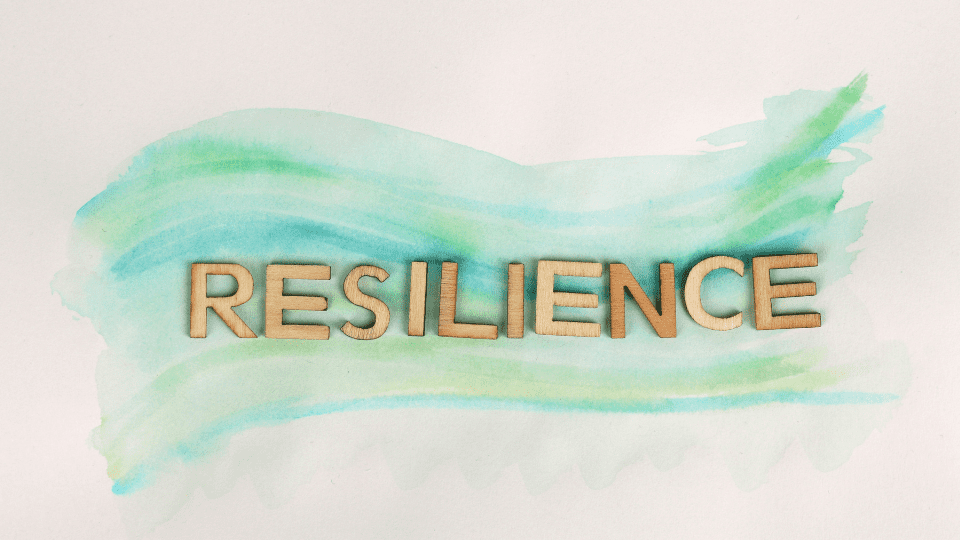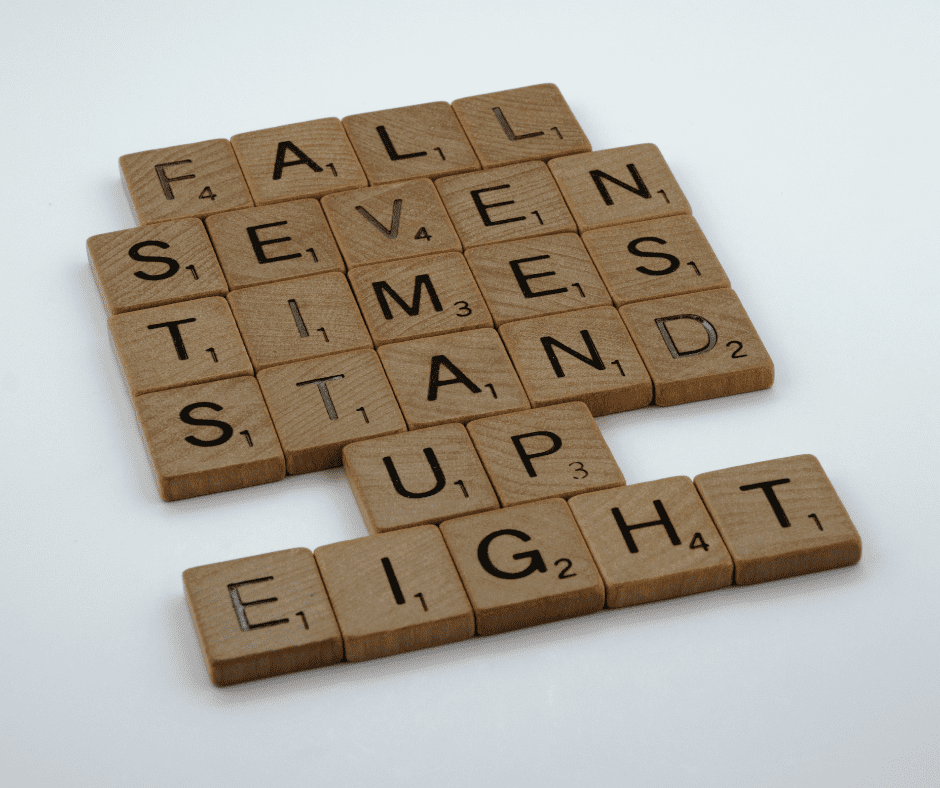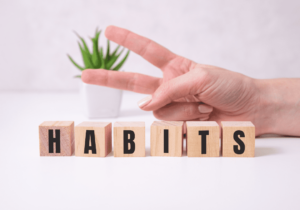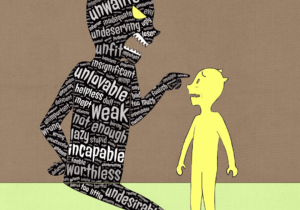Resilience to Stress: 11 Reliable Tactics you can use to Overcome
How well do you adapt to challenging life experiences? Whether we recognize it or not, we’ve all faced moments in our life that required resilience to help us get through them. Yet, developing resilience to stress is not for the faint of heart. It takes work, but it’s worth it.
What resilience means
The American Psychological Association says, “Psychologists define resilience as the process of adapting well in the face of adversity, trauma, tragedy, threats, or significant sources of stress—such as family and relationship problems, serious health problems, or workplace and financial stressors. As much as resilience involves “bouncing back” from these difficult experiences, it can also involve profound personal growth.”
- Have you faced health issues that you’ve worked through?
- Have you experienced the death of a loved one (pets included) and gotten out of bed and kept going?
- Maybe you moved far from home, not knowing a soul, and kept living?
- Or perhaps you didn’t get a job you thought was perfect for you, but you kept on working.
You’ve likely experienced many resilience moments in your lifetime. (These are just a few of mine.)
I have family and friends who are some of the most resilient people I’ve ever known. And I’ve been through my share of experiences that required a lot of resilience to come out on the other side. My guess is you have too (I have yet to find the person who hasn’t).
Every month you'll get access to the newest recipes and articles!
A Glimpse into the Past
Resilience to stress is not usually something we feel like we have when we’re living through a challenging time. It’s something we look back on and often wonder how we survived, how we came through something that felt insurmountable at the time. And yet we did. Resilient people usually come out stronger on the other side. That’s why it can be valuable to look back at the many times you’ve shown resilience. They serve as reminders or lessons we can take with us the next time we need to get through a difficult period.

We can use that information to do several things:
- Shower ourselves with compassion (and acceptance) for what we’re managing.
- Remind ourselves that just getting out of bed every day and doing what we can is enough.
(Can you get in a light workout instead of the more strenuous one you were hoping for? That’s enough. Can you cook yourself a healthy dinner? That’s enough.)
- Give ourselves grace and allow ourselves to be upset or depressed or feel whatever we need to feel for a few days or more, and then try to do a little more.
- Recognize that resilience is not fixed and that you can learn it, practice it, develop it, and get stronger at it.
Resilience vs. Grit

While resilience is about how well we bounce back after struggling or failing, grit is about continuing our efforts despite those setbacks.
Kori D. Miller says, “Grit is about sustained, consistent effort toward a goal even when we struggle, falter, or temporarily fail. Resilience is our ability to bounce back after we have struggled, faltered, or failed. It is being able to pick ourselves up, dust ourselves off, take a moment or two to collect ourselves, and then get back to business or pursuing our goal. It involves optimism.”
Psychologist and author Angela Duckworth notes that resilience to stress is one piece of grit. For example: Let’s say you’ve been trying to ride up a steep hill on your bike, but you have to get off and walk part of the way because you just can’t make it yet. It takes grit to keep trying. It takes resilience to know that though you’ve failed to make it, you’re going to try again.
Angela Duckworth discusses resilience and grit in two great YouTube Videos:
Resilience examples: If You Build It, It Will Come
When I was 28, I was diagnosed with Crohn’s disease. I was in constant pain, exhausted, and malnourished from not being able to eat much. It was all I could do to get to work and home every day. It took some time, but I went into remission. And while I eventually stopped thinking about how I made it through such a tough time, those memories are always there.
Fast forward to over 20 years later and I’m dealing with some small health issues again. In the beginning, I felt useless, depressed, and tired. And then I remembered my Crohn’s days and was able to recall how resilient I had been. I used those memories to remind myself that it would work out again. That I had to get out of bed and figure out what I could do. I could work out. I could continue to rely on my healthier eating habits to nourish my body.
Resilience skills
Here are some suggestions you can think about using to start building those resilience skills so you can evoke them when you might need them most:
- Be proactive. Get out of bed. Make breakfast. Have coffee with a friend. Go for a walk or do something physical, if you can.
- Take a look at your mindset. When possible, change how you see what you’re facing to a challenge rather than a threat. Ask yourself things like, “How can I work through this challenge?” “What have I done in the past?”
- Learn to adopt a growth mindset. You can always find ways to move forward if you think you can learn how to.
- Practice gratitude. Name three to five things you’re grateful for every day. This can give you a break from thinking about the negative thing you’re facing and help you focus more on the good stuff.
- Meditation. Become aware of what’s going on in your mind and your body. And this doesn’t have to be hard-cord meditation. It can be just sitting and paying attention to how you feel physically and mentally.
- Take time to process what you’re going through and pay attention to what you’re thinking so you can delve into those thoughts to work through them.
Recall previous times in your life where you showed resilience to stress. What lessons can you use as coping skills the next time you need them? Where can you learn coping skills if you don’t have them? Perhaps a wise person you know, or a great book?
- Connect with people who allow you to be yourself and express your fears and challenges. Keep a support group of people (which might include a therapist) in your back pocket that you can turn to when needed. Many of us think we can handle things on our own, but nothing could be further from the truth.
How Resilient to Stress Are You?
If you’re curious about how resilient you might be, try taking one (or more) of the following tests to see if it resonates with how you currently think about how well you bounce back during hard times.
And if you’re seeking a little more inspiration, check out some of the following resilience Podcasts:

Because life is life, and there will always be tough challenges to maneuver, remember that you’ve overcome adversity in the past and that you can build resiliency skills and have coping mechanisms in place to work through them again. Stay strong and carry on!
Perfection rejectionist Lisa Kiersky Schreiber is a nutrition and lifestyle coach who helps clients take a holistic and realistic approach to wellness. Lisa got off the diet carousel and can help you do the same.
Find other articles written by Lisa on her coach profile. Her philosophy will help you simplify your nutrition lifestyle so you can learn to trust yourself implicitly around food.







